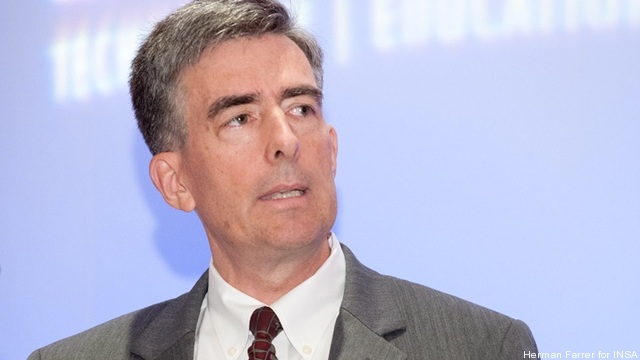 The National Security Agency is launching a mobile device capability at the end of this year that will allow its personnel to securely access classified information with their smartphones and tablet computers.
The National Security Agency is launching a mobile device capability at the end of this year that will allow its personnel to securely access classified information with their smartphones and tablet computers.
The program, which is a joint effort with the Defense Information Systems Agency, could potentially provide the military services with similar secure information access capabilities. Keep reading →
 The
The  The push to adopt
The push to adopt  The nation’s top military cyber commander offered his version of how government and military agencies are likely to work together when America suffers cyber attacks, and warned that industry needs to take a greater role.
The nation’s top military cyber commander offered his version of how government and military agencies are likely to work together when America suffers cyber attacks, and warned that industry needs to take a greater role. Open source software has long been touted as the antidote to monolithic, buggy, and
Open source software has long been touted as the antidote to monolithic, buggy, and 
 Gen. Keith B. Alexander, Commander of US Cyber Command and Director of the National Security Agency addressed a standing room only crowd at the just-concluded
Gen. Keith B. Alexander, Commander of US Cyber Command and Director of the National Security Agency addressed a standing room only crowd at the just-concluded  Randy Siegel,a mobile computing executive who has worked with the federal government’s civilian, defense and intelligence agencies on mobile strategies and applications for more than a dozen years, has joined Breaking Gov’s
Randy Siegel,a mobile computing executive who has worked with the federal government’s civilian, defense and intelligence agencies on mobile strategies and applications for more than a dozen years, has joined Breaking Gov’s The United States is “losing the cyber espionage war” against
The United States is “losing the cyber espionage war” against  A top National Security Agency executive argued today that if the nation is to defend against escalating cyber threats, it will be increasingly important for individuals, corporations and institutions, including government, to be held more accountable for their contributions to, and their actions within, cyber space.
A top National Security Agency executive argued today that if the nation is to defend against escalating cyber threats, it will be increasingly important for individuals, corporations and institutions, including government, to be held more accountable for their contributions to, and their actions within, cyber space. For weeks now rumors have been circulating about the White House working to draft an executive order, which will put in place
For weeks now rumors have been circulating about the White House working to draft an executive order, which will put in place